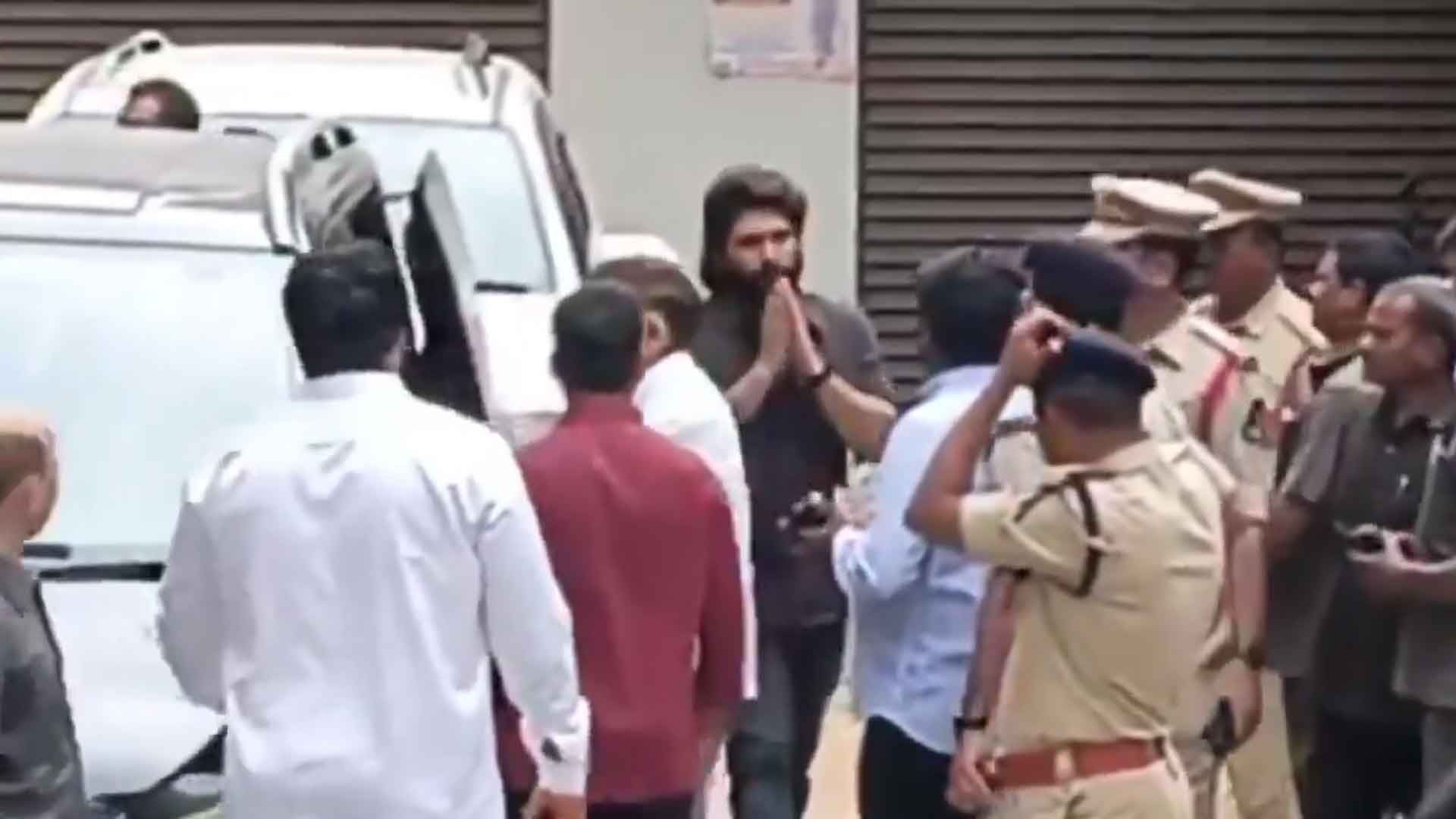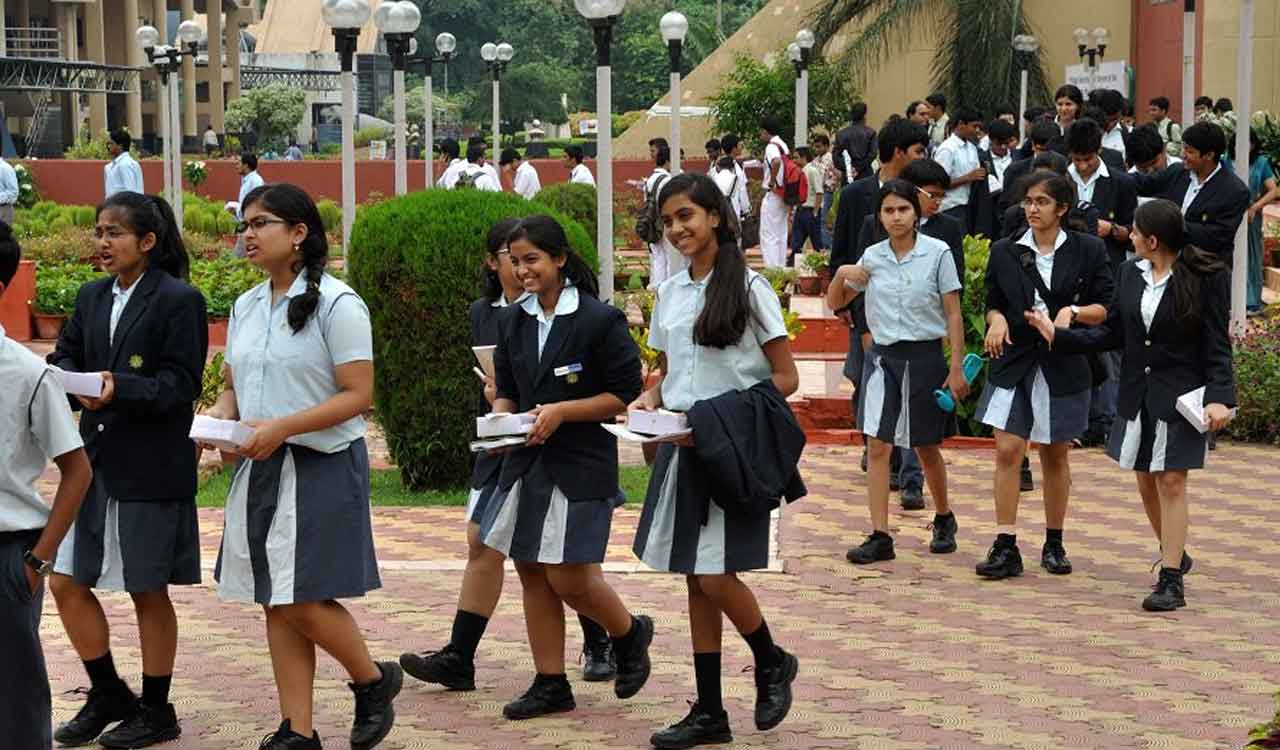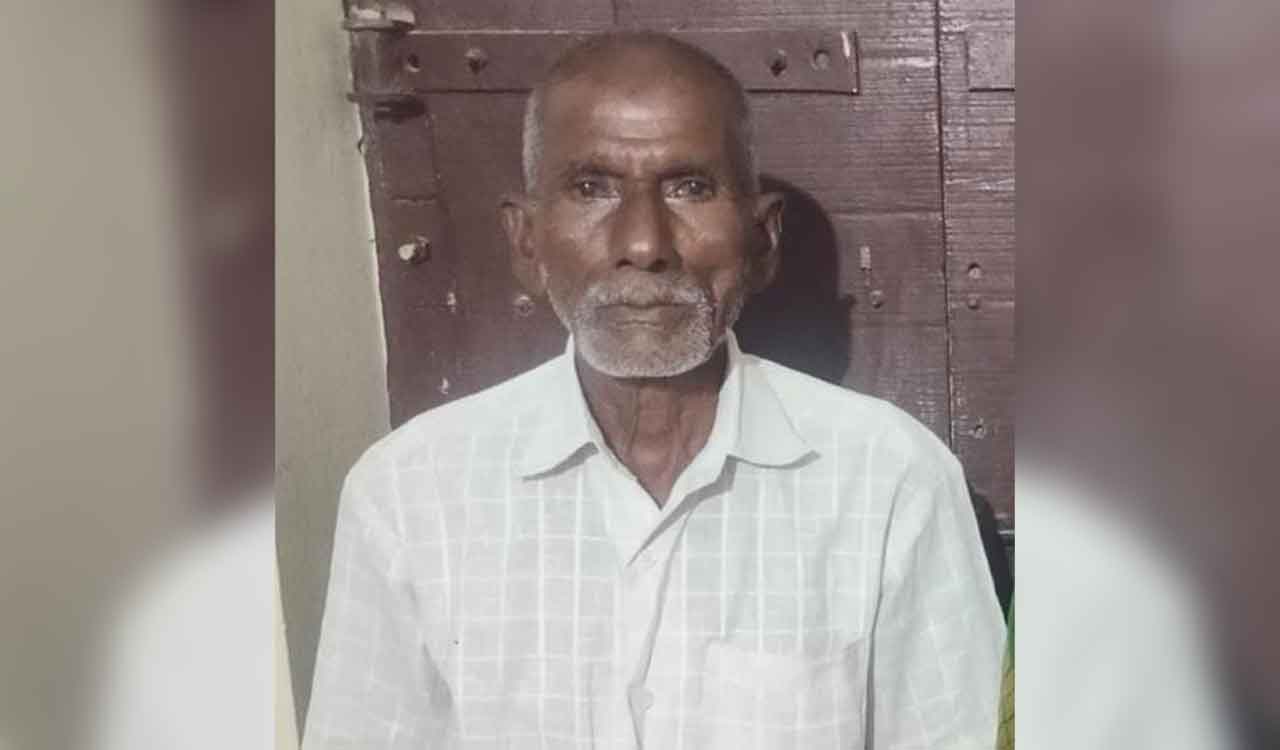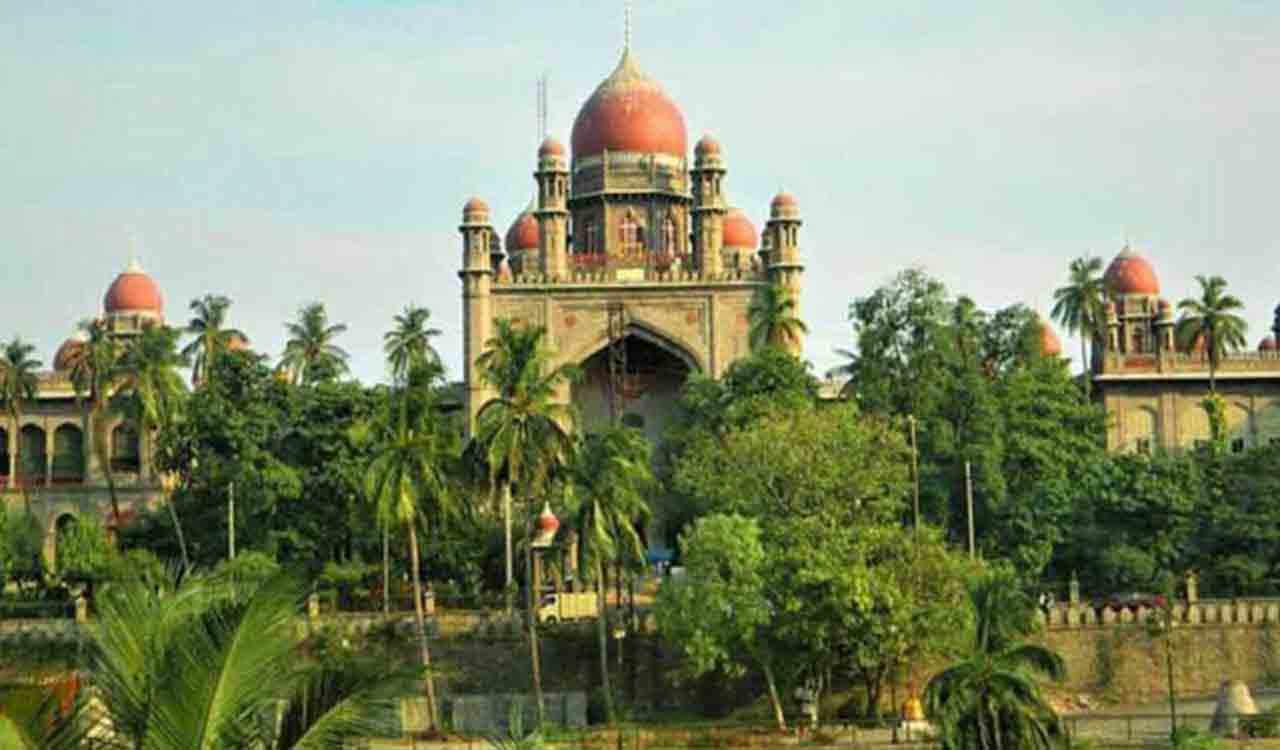The new information illiteracy
With little revealed and even less understood, ‘public sphere’ is the covert sphere of cleverly planted questionable infotoids
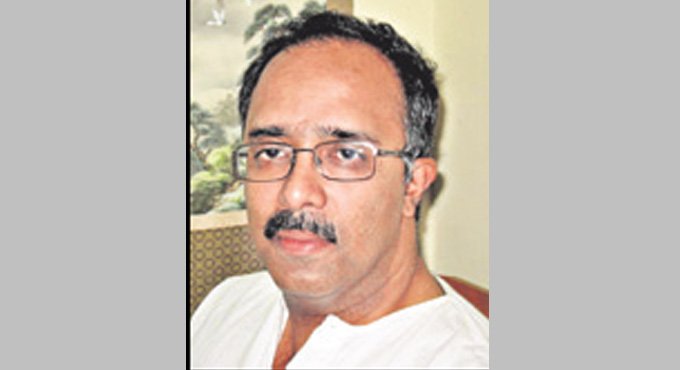
When Donald Trump tested positive for Covid, he made headlines (and memes). That the head of a state was (a) despite utmost medical surveillance ‘caught’ by the spreading pandemic and (b) willing to admit to the fact, were remarkable moments, given how the health of heads of state, the exact nature of their ailments and the manner, and date-and-time of their deaths have been concealed or altered. NatGeo puts it simply in the case of American Presidents: ‘Whether they were unwilling to relinquish their power or didn’t want to be perceived as vulnerable, several presidents covered up their illnesses’.
In the recent past, we have seen the mystery around the death – or not – of North Korea’s Kim Jong-Un in conflicting news reports since 2019, as recently as August 2020. The Financial Express wrote: ‘some experts though are pointing out that the North Korean dictator is dead leaving his sister Kim Yo Jong as the de-facto leader of the country infamous for its secrecy’. The deaths of General Franco and Josef Stalin were similarly reported, refuted and reiterated endlessly so that no one was clear when and how these dictators died.
Secrecy and Security
The standard defence of acts of secrecy around the head of state’s health is that such information would render the nation unstable and open up the possibility of attack by its enemies. Thus ‘secrecy’ is made cognate with ‘security’. The irony, points out the public administration scholar, Alasdair Roberts, in his Blacked Out, is that ‘in robust democracies, the path to improved security may actually lie in a policy that encourages the free flow of information’, where the people of the nation can actually see potential weaknesses and work to overcome them rather than live under the myth that the nation is secure.
When news reports circulate hinting at the ill-health of a head of state or – equally serious, in many cases – the imminence of economic collapse, the secrecy engendered by the state produces not a sense of security but its exact opposite: anxiety. Secrecy also gives rise to conspiracy theories and, as law professor Mark Fenster argues in Conspiracy Theories: Secrecy and Power in American Culture, these begin to inform public life, with popular culture and the social media fuelling the flames.
Secrecy around the economy, the physical and mental health of its ‘rulers’, the defence preparedness, the true nature of public health systems produces a citizen, who is on edge when it comes to these matters. The concealment, as a preliminary to the acquittal of culprits, perpetrators and criminals that occurs frequently today, means that the citizens begin to see the need for them to surveill the rulers and systems, to keep a watch on things. Such a public culture ‘transforms the surveilled into surveillers of the very structures of power that are supposed to safeguard those surveilled’. Secrecy over processes and facts, such as they are, endangers the psyche of a nation (if nations have psyches) – and totalitarian states demonstrate this well enough for it to be a truism.
Secrets – of Power
We readily grant here the argument that secrecy is necessary when it comes to questions of national security, foreign policy connections or a nation’s network of local sources and informants in any part of the world. However, what has worried observers in recent times – and democracies are not an exception to this worry – is that secrecy is employed by those in power to dominate and discriminate. To the argument that only totalitarian states and dictatorial regimes maintain a ‘secret police’ and dossiers on its citizens – the Stasi of former East Germany would be an example, at one time it had more employees than the army itself, and its informers included thousands of civilians who spied and reported on spouses, parents and neighbours – one can only counter with the McCarthy era in the USA and the systematic secret files prepared on citizens.
A state engages in secret actions against its own citizens, but not always for their safety. A ruthless pursuit of ‘dissidents’, ‘anti-nationals’, ‘subversive elements’ and those in opposition to the ones in power results in illegal phone taps, surveillance and other acts. Here, political scientist Rahul Sagar’s summary in Secrets and Leaks: The Dilemma of State Secrecy is apposite:
“the question at the heart of the contemporary debate on state secrecy is not about whether or not there should be state secrecy; rather, it is about what sort of regulatory framework will ensure that state secrecy will be used to protect national security and not to conceal the abuse of power.”
Sagar points to the crux of the problem: the excuse of security barely conceals the employment of secrecy as a founding principle of abusive power.
Deniability, that is the hallmark of state secrecy in the face of public – often even judicial – queries about a policy, event or person, is a direct attack on the myth of secrecy-as-security, for it absolves the state and its apparatuses of any responsibility towards those, in theory, it is meant to guard and aid. Did the enemy really cross into our territory and were our citizens on the border harmed? What is the real state of research into a vaccine? Who were the assassins of rationalists, dissenters and so-called ‘dissidents’? These are questions to which the state can and does deny answers.
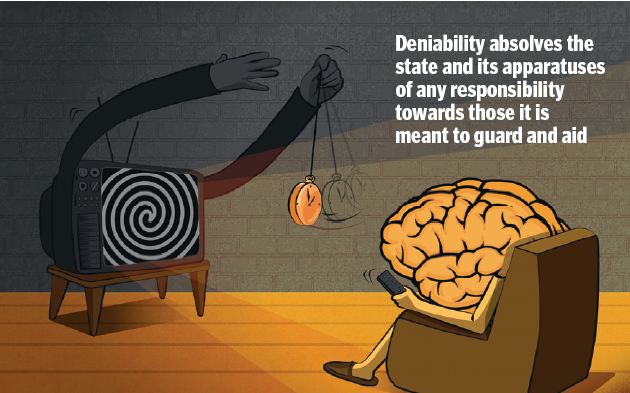
Fiction as Facts
Clearly, then, the true state of economic, military, political and social affairs is beyond public knowledge and discussion. This means the older notions of the ‘public sphere’ as a space of reasoned public debate are no longer tenable.
The state produces fiction that masquerades as facts. Public knowledge of facts is denied or classified under ‘official secrets’. Writing about the massive attempts to transform the USA into what he terms a ‘National Security State, with its emphasis on secrecy and deception’, Timothy Melley, Director of the Miami University Humanities Centre, argues:
“As state secrecy shifted the conditions of public knowledge, certain forms of fiction became crucial in helping Americans imagine, or fantasize about, U.S. foreign policy. This transformation had a powerful role in fostering the forms of suspicion, skepticism, and uncertainty…”
The result is a shift, in Melley’s words, from the public sphere to the ‘covert sphere’ (the title of his 2012 book). This covert sphere is now a part and parcel of what we deemed to be ‘public’ and by definition open to scrutiny. With little revealed and even less understood, the ironically named ‘public sphere’ of democratic states is actually the covert sphere of cleverly planted questionable and unverifiable infotoids. Debates and discussions are around myths, social media rants and redacted information released by state agencies. We sense that there are more things in heaven and earth than are dreamt of, or enunciated, in the information available to us. Beneath this ‘information’ is an ocean of secrets.
Welcome to ‘the new information illiteracy’ of the 21st century.
(The author Professor, Department of English, University of Hyderabad)
Now you can get handpicked stories from Telangana Today on Telegram everyday. Click the link to subscribe.
Click to follow Telangana Today Facebook page and Twitter .
Related News
-
Cartoon Today on December 25, 2024
5 hours ago -
Former Home Secretary Ajay Kumar Bhalla appointed Manipur Governor, Kerala Governor shifted to Bihar
6 hours ago -
Opinion: The China factor in India-Nepal relations
7 hours ago -
Editorial: Modi’s Kuwait outreach
7 hours ago -
Kohli and Smith will be dangerous and hungry: Shastri
8 hours ago -
Sharvari shares her TBR list of romantic book titles, suggested by fans
8 hours ago -
Khammam Congress gaffe: Union Home Minister Amit Shah made ‘Defense Minister’
8 hours ago -
Couple held for theft in Hyderabad
8 hours ago

